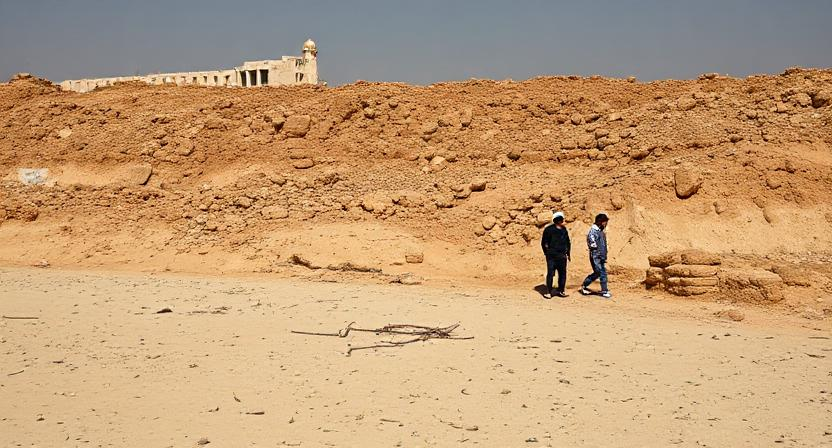israel gaza: A Historical and Contemporary Analysis

The conflict between israel gaza is one of the most enduring and complex geopolitical issues in the modern world. Rooted in a long history of territorial disputes, political struggles, and deep-seated animosities, the situation continues to evolve with significant global implications. This article explores the historical background, key developments, and current state of affairs in the ongoing Israel-Gaza conflict.
Historical Background
The roots of the Israel-Gaza conflict trace back to the early 20th century when Jewish and Arab nationalist movements emerged in response to the declining Ottoman Empire and the subsequent British Mandate of Palestine (1917-1948). The Balfour Declaration of 1917, in which Britain expressed support for a Jewish homeland in Palestine, intensified tensions between Jewish and Arab communities.
Following the Holocaust and World War II, international support for the establishment of a Jewish state grew. In 1947, the United Nations proposed the partition of Palestine into Jewish and Arab states, a plan accepted by Jewish leaders but rejected by Arab leaders. In 1948, Israel declared independence, leading to the first Arab-Israeli war. Gaza came under Egyptian control following the war, but tensions persisted.
The Israeli Occupation and Hamas’ Rise
In 1967, during the Six-Day War, Israel captured israel gaza from Egypt and the West Bank from Jordan, marking the beginning of a prolonged occupation. Over the years, resistance movements emerged, leading to the First Intifada (1987-1993), which saw widespread protests and violence. This period led to the signing of the Oslo Accords in the 1990s, which aimed at establishing a framework for peace between Israel and the Palestinians.
In 2005, Israel unilaterally withdrew from Gaza, removing its settlements and military presence. However, in 2006, Hamas, an Islamist militant group, won elections in Gaza, leading to a power struggle with the Palestinian Authority. By 2007, Hamas had seized full control of Gaza, prompting Israel and Egypt to impose a blockade, restricting movement and goods into the territory.
Recurring Conflicts and Military Operations
Since Hamas’ takeover, israel gaza have experienced multiple wars and violent escalations. Key conflicts include:
- Operation Cast Lead (2008-2009): Israel launched a military offensive in response to Hamas rocket attacks, resulting in significant casualties and destruction in Gaza.
- Operation Pillar of Defense (2012): A short but intense conflict following Israeli airstrikes targeting Hamas leadership.
- Operation Protective Edge (2014): One of the most devastating wars, lasting 50 days and causing over 2,000 Palestinian deaths and significant damage to Gaza’s infrastructure.
- May 2021 Conflict: Sparked by tensions in East Jerusalem, Hamas launched rockets toward Israeli cities, prompting Israeli airstrikes in Gaza.
- October 2023 Escalation: A large-scale attack by Hamas on Israel led to a significant military response from Israel, worsening the humanitarian crisis in Gaza.
Humanitarian Crisis in Gaza
israel gaza faces severe humanitarian challenges due to ongoing conflicts, the Israeli blockade, and governance issues. The UN and human rights organizations have reported dire conditions, including:
- Limited Access to Basic Needs: Shortages of food, clean water, medical supplies, and electricity.
- Economic Hardship: High unemployment rates, with over 50% of the population facing poverty.
- Health System Collapse: Hospitals struggle to function due to lack of supplies and frequent Israeli airstrikes targeting infrastructure.
- Psychological Impact: Generations of Palestinians in Gaza have grown up amid violence, leading to widespread mental health issues.
International Involvement and Peace Efforts
The israel gaza conflict has drawn global attention, with various countries and organizations attempting to mediate peace. The United Nations, United States, European Union, and regional powers like Egypt and Qatar have played roles in ceasefire negotiations and humanitarian aid efforts. However, a lasting resolution remains elusive due to deep political divides and mutual distrust between the parties involved.
Current and Future Outlook
The future of israel gaza remains uncertain. Several factors could influence developments:
- Diplomatic Negotiations: Renewed peace talks could lead to agreements on governance and security.
- Leadership Changes: New leadership in Israel, Hamas, or the Palestinian Authority could alter the political landscape.
- Regional and Global Pressure: Increased involvement from international actors might push for a more sustainable peace solution.
- Economic Development: Investment in Gaza’s economy could ease tensions by improving living conditions.
- Public Sentiment: Growing frustration among Israelis and Palestinians may lead to grassroots movements demanding change.
Despite the challenges, many hope for a resolution that ensures peace, security, and dignity for both Israelis and Palestinians. The international community continues to monitor the situation closely, advocating for diplomatic efforts to end the cycle of violence and suffering.







